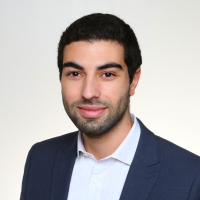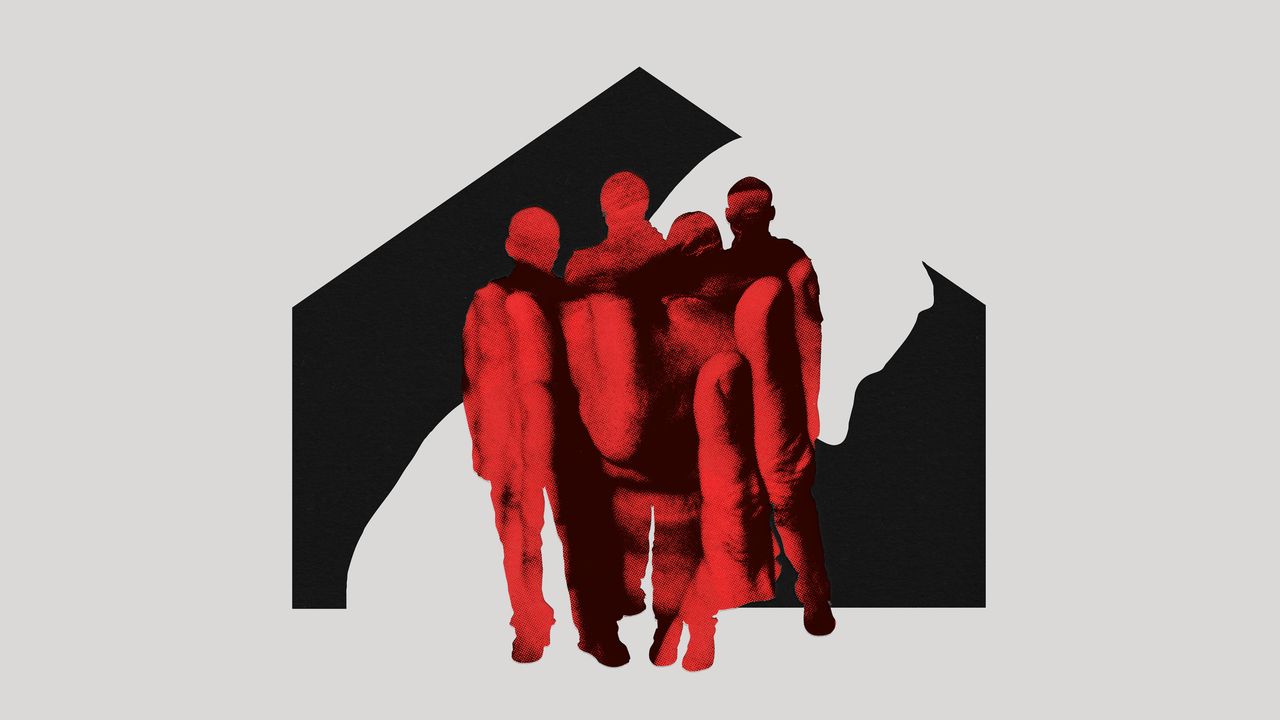On Friday morning, hundreds of thousands of illegal immigrants appeared in the United States. I’m using the term “illegal immigrants” because these people are not undocumented. They have papers. They arrived on planes, months ago, with the government’s permission. They submitted to background checks. Then the Supreme Court issued a one-paragraph decision: it would allow Donald Trump to terminate the program that had made it possible for them to be in the country. In an instant, the Court turned as many as five hundred and thirty thousand legal immigrants into—to use the brutal non-euphemism of the government—“deportable aliens.”
Those immigrants entered the United States under the C.H.N.V. Parole Program, a Biden Administration initiative that granted people from Cuba, Haiti, Nicaragua, and Venezuela a two-year parole, during which they could apply for some form of long-term legal status, including asylum. They were well-vetted, and they gave their biometric data to the government, yet Trump has subjected them to some of his most vicious attacks. During the second Presidential debate, when he shouted, inaccurately, about migrants “eating the dogs,” in Springfield, Ohio, he was talking largely about Haitian C.H.N.V. parolees, who, with legal work permits, had helped rejuvenate the city’s manufacturing industry.
On Saturday, I called Ruben, a university worker who came to North Carolina from Nicaragua through the C.H.N.V. program with his wife and five-year-old son. He said it was “frustrating” that Trump was targeting immigrants like them. “Practically, what I would like is for them not to view us with contempt, right?” Ruben said. “We sought the opportunity to come here in the right way.” I was struck by the phrase “the right way.” I’d heard it often from Trump voters, in the hills of Iowa, on the border of Texas, and at my own family’s Thanksgiving table. “I’m not anti-immigrant,” they said. “I just want them to come here the right way.”
C.H.N.V. is poorly understood. But immigrants who arrived through the program did things, unambiguously, the so-called “right way.” For years, Ruben and his wife had looked into ways to move north. In 2023, in a bid to suppress dissent, Daniel Ortega, the Nicaraguan dictator, had “confiscated” Central American University (U.C.A.) in Managua, the storied Jesuit college where Ruben and his wife both worked. Unemployed and under suspicion for dissent because of their ties to U.C.A., the couple saw few options. Ruben applied for a U.S. visa, but, with no American citizens in his family, he knew that the wait could take decades. He began asking friends if the family should risk crossing illegally, though the journey through gang-ridden Mexico terrified him, especially with a young child in tow. Then an American Jesuit priest whom Ruben had met at U.C.A. told him about C.H.N.V. He explained that the only way to start the application was for someone living legally in the States to agree to sponsor them; this person had to prove that they could provide financial support. Incredibly, the priest had a friend of a friend in Baltimore who wanted to help. Ruben got together the information that the U.S. government would need for his background check. Once he and his wife were approved to travel to the U.S., they flew to Fort Lauderdale, where Customs and Border Protection further vetted them for security risks, and agents scanned all ten fingerprints for each of them, including their five-year-old, before they continued on to Baltimore. As they walked, dazed, into the airport, the family’s sponsor ran up to greet them. It was their first time meeting her in person, and, that first night, they slept at her home. “It was a warm welcome, it was spectacular—it was like a movie,” Ruben said.
With more than eleven million undocumented immigrants already in the country, why would Trump create a population of some five hundred thousand more for ICE to deport? It comes down to timing and fingerprints. Under the new Administration, ICE is putting migrants who have been in the country for less than two years into what’s called “expedited removal.” These proceedings, which, in the past, have been reserved for people caught just after they crossed the border, allow ICE to rapidly deport someone, often without giving them a chance to see a judge. One of Trump’s recent obsessions, along with renaming the Gulf of Mexico and claiming Greenland, is hitting a record million deportations in his first year in office. Cancelling C.H.N.V. could give a quick boost to his current number. The government already has fingerprints and addresses for C.H.N.V. parolees; ICE can move on them now. (The same logic applies to other forms of mass illegalization, like revoking student visas: the Trump Administration could take credit for removing thousands of college kids.)
“Today, the Supreme Court enacted the largest mass de-legalization program in U.S. history,” Karen Tumlin, the founder and director of the Justice Action Center, an immigrant-advocacy group, and a lawyer representing some of the plaintiffs in the Supreme Court case, said on a press call. Tumlin stressed that the legal fight wasn’t over. The Supreme Court had revoked a lower court’s injunction blocking the termination of the program, but hadn’t issued its own ruling (the case continues in the lower court). Meanwhile, five hundred and thirty thousand C.H.N.V. parolees could still apply for other forms of legal status—in fact, Tumlin estimated that close to half of them already had. But they still faced profound risks. At one point on the call, Tumlin addressed any clients listening. She got choked up. “You did everything the United States has asked of you. And you deserve much better,” she told them.
Guerline Jozef, the co-founder of the Haitian Bridge Alliance, received dozens of panicked calls from Haitian immigrants in the hours after the Supreme Court decision (the organization’s hotline received hundreds more). She had become close to two teen-agers who had come a year earlier from Gonaïves, a city in western Haiti, in a region where gangs enforce control by burning down houses. “When they got here, they could finally breathe a sigh of relief. They finally felt safe,” Jozef said. They were living together in New York City and preparing to go to college in the fall. Then the Supreme Court announced its decision. “Overnight, that was all taken from them,” she said. “They’re feeling terror in a place they, with all their hearts, felt safe in.” The two young women are no longer leaving their apartment for any reason—school and work in the United States seem to be over for them. “A couple of the people I’ve spoken to are not even leaving their beds,” Jozef said.
Andrea Flores, the vice-president of immigration policy and campaigns for FWD.us, a pro-immigrant policy group, believes that Democrats made a mistake when they chose not to ardently defend C.H.N.V. “This program was smart,” Flores said. When the Biden Administration began rolling out the program, in October, 2022, Cuba was experiencing its most severe financial crisis since the fall of the Soviet Union; Haiti’s central government was verging on collapse; Nicaragua’s dictatorship was hardening; and Venezuela was descending ever deeper into deprivation. Hundreds of thousands of citizens of those countries had recently crossed the border without authorization. In December, 2024, C.B.P. announced that, since the start of the program, the numbers of migrants from Haiti, Nicaragua, Venezuela, and Cuba that it was encountering at the border were collectively down ninety-eight per cent. That figure might overstate the program’s effectiveness—arrivals from many other countries went down in that same time frame. But going off the monthly data it’s clear the program was a success. Just six months after C.H.N.V. was implemented, numbers of Cuban, Nicaraguan, Venezuelan, and Cuban C.B.P. encounters went down eighty-nine per cent, even as over-all encounters remained high. I saw the effects firsthand. In early 2024, when I travelled to migrant shelters in northern Mexico, I was particularly stunned at how few Cubans I was meeting, compared with just a year earlier.
Flores, who served in the Biden Administration but did not work on the program and left before it was implemented, thought that, if Biden had been more effective, he might have helped Americans understand that C.H.N.V. was the future: a safe, legal way to take would-be border crossers, vet them, and connect them directly with sponsors. “Every piece of it was designed to build trust in the immigration system, by connecting immigrants to American citizens; by allowing them to sponsor; by preventing people from having to go to the southwest border. It made humanitarian protection so much more orderly,” she said.
A few days after the decision, I sent the Department of Homeland Security a list of questions: Would they seek to deport all C.H.N.V. parolees? If parolees went to a government office to apply for asylum, or to check in at a mandatory visa appointment, would ICE arrest them there? Would ICE get access to parolees’ biometric data as it seeks to remove them? The agency replied by repeating a short statement it issued after the Supreme Court decision. “The Biden Administration lied to America. They allowed more than half a million poorly vetted aliens from Cuba, Haiti, Nicaragua, and Venezuela and their immediate family members to enter the United States through these disastrous parole programs,” Assistant Secretary Tricia McLaughlin wrote. “Ending the CHNV parole programs, as well as the paroles of those who exploited it, will be a necessary return to common-sense policies, a return to public safety, and a return to America First.”
Today, in North Carolina, Ruben works long nights at one of the state’s major airports, cleaning the insides of jets as they sit empty under floodlights on the tarmac. The second that the Supreme Court issued its decision, it is possible that his work permit was also terminated, but its status is unclear. Theoretically, he has another route to remain legally in the country. Like many other C.H.N.V. parolees, Ruben used his parole period to apply for asylum. The Trump Administration has attacked the asylum process from all sides, but Ruben’s claim should give him some measure of security from deportation as his case progresses. This thought does not soothe him. ICE has been arresting asylum seekers and other immigrants at courthouses or government offices after their hearings. Both from his time in Nicaragua and his experience of C.H.N.V., he knows that the law is only as strong as the government’s will to enforce it. “Honestly, we’re nervous,” he said. “We don’t know what the outcome of all of this is going to be. We believe we’re vulnerable. What we’re left with is the fear.” ♦






